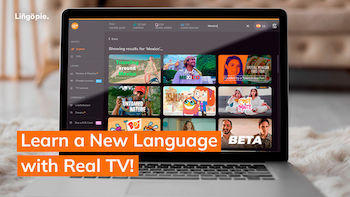
A language is only a tool for communication and self-expression, and it’s an evolutionary development: a collective, generational development, not a single invention. So, as we evolved, the language evolved with us.
Language is a human trait, a human behaviour. And language is key to all human activities, including self-actualization. Self-actualization is the process of becoming everything you are capable of becoming.
See, thoughts create words. Words create actions, and actions create reality. But also, “words create worlds.” Because thoughts create words, and words create thoughts in return.
Where do words come from? Which is the same as saying, where does language come from? We don’t know for sure what the origin of language is, but we know that there is an element of wanting to communicate what one individual sees to another individual. Language comes from the need to communicate and express one’s point of view. And the point of view originates from personal experience. There is nothing neutral or objective in this, nor it should be.
When we grow up, we organically develop a point of view in our native language. Still, when we learn another language as adults, we often fail to explore our point of view in the context of the new language and, therefore, fail to express it in that new language.
Why does this happen? It happens because languages are not directly translatable. A language is the expression of an entire culture and view of the world of a group of people. This culture and view of the world are different from other cultures and views of the world. Therefore, one cannot translate those directly. What is required is understanding and experiencing the culture and view of the world so that a more accurate “translation” can happen. And for that, we need not only our intellect for understanding, but our body to experience.
This brings us to the need to work with an embodied language coach as part of the language learning process.
What is an embodiment coach?
Before I respond to that question, I want to talk about embodiment.
What is embodiment?
Embodiment is the act or state of becoming the tangible or concrete expression of an abstract idea, quality, or principle.
Embodiment in language
When we talk about “embodied language”, it is the act of being a concrete expression of the language.
Language is composed of concrete and abstract words. Concrete words refer to physical objects in the real world. In contrast, abstract words refer to concepts, ideas, and principles that cannot be touched or do not exist in the “tangible” world.
Learning a language has a concrete quality, mostly when learning happens naturally or when it is a native language. For example, I see a dog and point out to it, and my dad tells me that it is a “dog”. I make the association of the animal with the word. Even then, language has an abstract component too.
Read “What birds taught me about embodied cognition and experiential learning“.
However, when we learn a non-native language, we tend to approach the language as an abstract thing. That means that we learn a language as a primarily intellectual activity relegating it to abstract thinking. Embodying the language means that we bring the language down from the intellect (and the realms of the abstract thought) to the body (and the realms of the physical and experiential).
What is an embodied language/communication coach?
There are so many elements of verbal expression that fall outside of knowing grammar and vocabulary!
The work of an embodied language coach focuses on two aspects:
Conscious, confident and authentic communication (use of language to transmit a message): A language is a tool for communication and self-expression. Still, this tool is so linked with our growth and mental chatter that the experiences we have growing up taint our language expression (from the inner voice to the way we express or the concepts we allow ourselves to explore or not). Language, when not consciously de-linked from beliefs, expresses biases, and it’s more a weapon for separation than a tool for connection (to oneself and others).
Integration of the language, the culture it belongs to and its worldview in ways that allow that to be expressed authentically by the learner.
What's the difference between a language teacher, a language coach and an embodied language coach?
The main difference is in how the knowledge is delivered.
A teacher gives information. A language teacher provides you with knowledge about the language.
A language coach guides you to find your own ways to access the information through questions and feedback.
An embodied language coach shows you to find your own ways to integrate the language and its view of the world and express it in authentic ways.
I’ve been a Spanish as a foreign language teacher for almost 20 years. A language coach for about six and an embodied language coach for over four.
Bringing embodiment into the language learning equation makes the entire process deeper and tangible. It goes beyond language and explores preconceptions one may have about accent, native vs non-native expression, the learning process, authenticity, etc. It also examines anxiety in its many forms, low self-esteem, limiting beliefs and behaviours, inner talk, conditioning, etc., as elements that impact our verbal expression in any language (native or non-native). And the result is that we start disintegrating those limitations and blockages through different techniques, such as conversational therapy, mindfulness, embodiment and self-exploratory practices.
The fact is that learning a language is always more than learning the vocabulary and understanding the grammar. Learning a language puts your mindset to the test. It brings biases to the forefront and triggers our fears or limiting beliefs.
Embodiment in the language learning process allows you to explore those and move past them, so you learn about yourself, evolve and become more of what you are capable of becoming. All that while learning a language and because of it.


